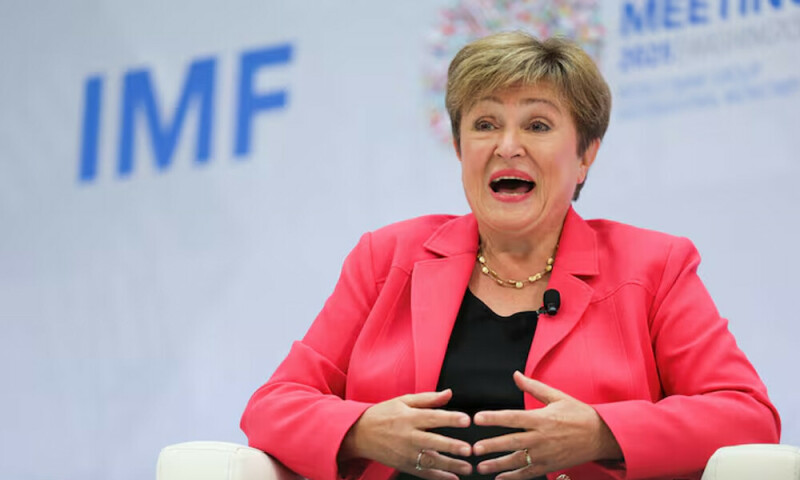WASHINGTON: The International Monetary Fund must be more active in debt restructuring processes, the global lender’s managing director, Kristalina Georgieva, said on Tuesday, noting the growing challenges facing vulnerable low- and middle-income countries.
Georgieva told an event hosted by the Bretton Woods Committee booster group that African countries and others, in a 1-1/2-hour meeting, said they wanted the IMF to provide more technical assistance to countries grappling with high debt levels.
She said the Global Sovereign Debt Roundtable, which includes creditor and borrowing countries as well as the IMF and the World Bank, had separately approved a new playbook to help countries navigate the complex process of restructuring heavy debt burdens.
The roundtable will release the document after a closed-door meeting in Washington on Wednesday during the spring meetings of the IMF and the World Bank.
A joint statement released by Georgieva and Hervé Ndoba, chair of the African Caucus and Central African Republic’s minister of finance and budget, said Africa faces the risk of further shocks that could undo strong policy actions taken to bring down inflation, stabilize public debt and reduce external imbalances.
“While growth in Africa is showing some resilience in the face of multiple shocks, the sudden shift in the global outlook has interrupted the growth momentum,” the two leaders said, noting that growth on the African continent had been revised down by 0.3 percentage point to 3.9% for 2025.
Pakistan reiterates pledge to IMF on economic reforms
African leaders and the IMF agreed on the need to ensure macroeconomic and financial stability while working to meet the continent’s economic development goals.
They said domestic reform efforts should promote fiscal sustainability by boosting revenue and improving spending efficiency.
“Now, more than ever, the Fund is committed to working with its member countries to help navigate the complex global economic environment,” the joint statement said, noting that addition of a 25th chair on the Executive Board for sub-Saharan Africa strengthened the region’s voice in the fund.
The statement also pledged that the IMF would “remain agile” in responding to emerging challenges, and providing support to initiatives like the G20 Common Framework and the Global Sovereign Debt Roundtable.
It welcomed IMF steps to review both its debt sustainability framework for low-income countries and the design and conditionality of lending programs with an eye to addressing macroeconomic imbalances and promoting growth.
The African Consultative Group includes governors from 12 African countries belonging to the African Caucus and IMF management.


